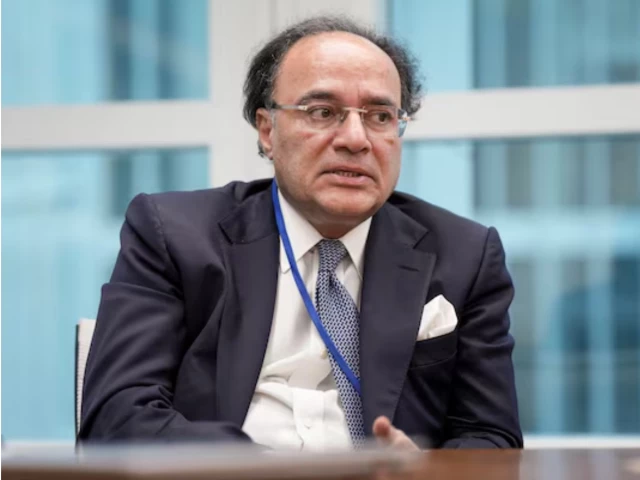Pakistan unveils new plan to boost social projects with public and private funding
Aurangzeib says corporate charity can grow if taxes and rules are made easier

Finance Minister Muhammad Aurangzeb, reflecting on prospects of improving philanthropy through policy and tax structure improvements, said that Pakistan's emerging Social Impact Financing Framework, a new initiative under the Prime Minister's Office, is aimed at mobilising public, private, and philanthropic capital for measurable social outcomes.
Speaking at the Corporate Philanthropy Awards 2025, hosted by the Pakistan Centre for Philanthropy (PCP), he said Pakistan's corporate giving reached a record Rs25.44 billion in 2023 and could double if the government undertakes meaningful policy and tax reforms to encourage structured giving and simplify compliance. "Corporate giving worth Rs25 billion is an extraordinary milestone," he said.
Aurangzeb said the government is modernising development financing through the new framework, which seeks to link social spending directly to measurable results. He said the initiative represents a shift from traditional, grant-based aid toward results-based and impact-linked financing to ensure every rupee achieves tangible outcomes.
"Rather than focusing on generalised spending, we are moving toward results-based and impact-linked financing," he said. "This requires blending public, private, and philanthropic capital into cohesive, outcome-driven structures."
He announced that one of the key projects under the framework will be Pakistan's first Skills Impact Bond, developed with the British Asian Trust and the National Vocational and Technical Training Commission (NAVTTC).
"The Skills Impact Bond is being launched to promote skills development and sustainable livelihoods," he said. "It will move us away from relying solely on traditional bank funding and allow us to tap into capital markets to raise financing for social purposes."
Aurangzeb added that the British Asian Trust's partnership brings global expertise to the program, helping Pakistan pioneer market-based social investment models that align philanthropic giving with long-term economic outcomes.
PCP's Corporate Philanthropy Report 2023 revealed that Pakistan's corporate sector contribution was the highest in the two decades since PCP began tracking corporate giving. Public Listed Companies contributed Rs18.23 billion, followed by Public Unlisted Companies with Rs3.28 billion and Private Limited Companies with Rs3.93 billion.
Despite the record figure, Aurangzeb and several experts highlighted policy gaps, complex tax laws, and regulatory inefficiencies that continue to constrain Pakistan's philanthropic ecosystem.
Pakistan's tax code offers limited incentives for charitable giving, and the non-profit certification process remains slow and cumbersome. The minister said these issues must be addressed to enhance transparency and accountability.
"Efficiency is needed at all ends," he said, referring to bureaucratic hurdles. "We must make it easier for both donors and non-profits to operate, while ensuring credibility and oversight."
"Philanthropy is not just an act of charity, it's an expression of our national identity," he said. "You are helping build a more compassionate, inclusive Pakistan."
He reaffirmed the government's commitment to partner with PCP and the private sector in promoting a structured culture of giving. "You are guiding, connecting, and recognising those who build with purpose and responsibility," he said. "The government stands with you as a reliable partner - fully committed to supporting your efforts in shaping a transparent, impactful, and sustainable philanthropy ecosystem." PCP Chairman Zaffar A Khan (SI) also addressed the gathering, emphasising that with proper facilitation, the corporate and non-profit sectors can significantly expand their contributions to Pakistan's social development.





1733130350-0/Untitled-design-(76)1733130350-0-208x130.webp)












COMMENTS
Comments are moderated and generally will be posted if they are on-topic and not abusive.
For more information, please see our Comments FAQ